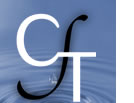 |
|||||||||
Video Recording Consultation
Why Should I Consider Recording My Class?
Many people video record their classes or sections to get a general picture of their teaching style and skills. Others wish to focus on particular problems or aspects of their teaching. Some choose to record on the recommendation of their friends and colleagues, or are part of an organized training program. The benefits are many: you can see your teaching in a new way when you are not involved in the moment to moment classroom process. Some people are rather apprehensive about appearing before the camera, but later find it a very rewarding and valuable experience. Most people find that certain things they were aware of but could not clearly perceive or handle during the process of teaching stand out boldly on video. Examples include students who do not speak during class time, students who dominate and engage in one-on-one dialogues with you, poor use of the board, "lecturing" rather than "discussing", and running out of time. Most people have fresh ideas and insights while they observe themselves. A copy of your recording also can be a valuable addition to your teaching dossier.
For additional information about why a video consultation might be helpful and some general strategies for getting the most out of the experience, see the chapter Watching Yourself on Videotape in Tools for Teaching, by Barbara Gross Davis.
What is involved in a Consultation with the Center for Teaching Staff?
To help you see yourself in a positive and constructive way, the Center for Teaching expects teachers to view and discuss their recordings with a Center consultant. (Instructors who wish to have a class recorded without scheduling a consultation should contact the Learning Resources Center.) Though prepared to discuss any aspect of teaching that you wish, Center consultants generally focus on mutual observations about the communication between you and your students and your teaching style and techniques. Strengths of your teaching, solutions to problems, and goals to pursue emerge in the course of the consultation. Subsequent tapings and viewings (in a subsequent semester) can be used to talk about progress toward those goals.
How do I Set Up a Recording and a Viewing Session?
First, contact the Center for Teaching (322-7290) and schedule a time to coincide with your regularly scheduled class; also schedule a viewing session for some time afterward. Video recordings are usually done in your classroom. It usually takes approximately twice as long to view and consult about the recording as it did to record it.
Who are the Consultants who will review my video with me?
The Director, Assistant Directors, and Graduate Teaching Fellows all have different backgrounds and will have different insights about teaching. All are excellent teachers and have extensive training and experience consulting with faculty and TAs at Vanderbilt. Typically, faculty will consult with the Director or Assistant Directors, while TAs will consult with Graduate Teaching Fellows. If you are recorded more than once, you may wish to continue your consultations with the same person (perhaps because you have developed a common basis for discussion), or you may wish to work with another Center consultant who may have different insights or a different approach. (Under normal conditions, the Center limits video consultations to one consultation per faculty per semester.)
Keeping Recordings Confidential
Your recording belongs to you; as such, it is not discussed with others, nor is it available to anyone besides you and your consultant without your written permission. (For more detail, see our "confidentiality policies".) After viewing, you may keep it for your own purposes; some teachers use the same recording for multiple classes over time, to get a cumulative record of their teaching. If you choose not to keep your recording, the Center will destroy it. Occasionally, the Center for Teaching will ask for your permission to show another individual or group an excerpt of your recording to illustrate a particular teaching situation, but we believe that the primary purpose of the recording is to allow you to observe yourself in a classroom according to your own standards of teaching and in the light of your own professional goals. The Center for Teaching feels that it is most effective initially for you to observe your teaching with your consultant alone, without having to consider the concerns of other viewers. Viewing your recording subsequently with colleagues can benefit your teaching enormously.
Adapted from materials used at the Derek Bok Center for Teaching and Learning, Harvard University. See the Bok Center website for more information.
HOME | ABOUT CFT | PROGRAMS | SERVICES | RESOURCES
Center for Teaching |
General Questions? Web Site Questions? Copyright ©2009 |
